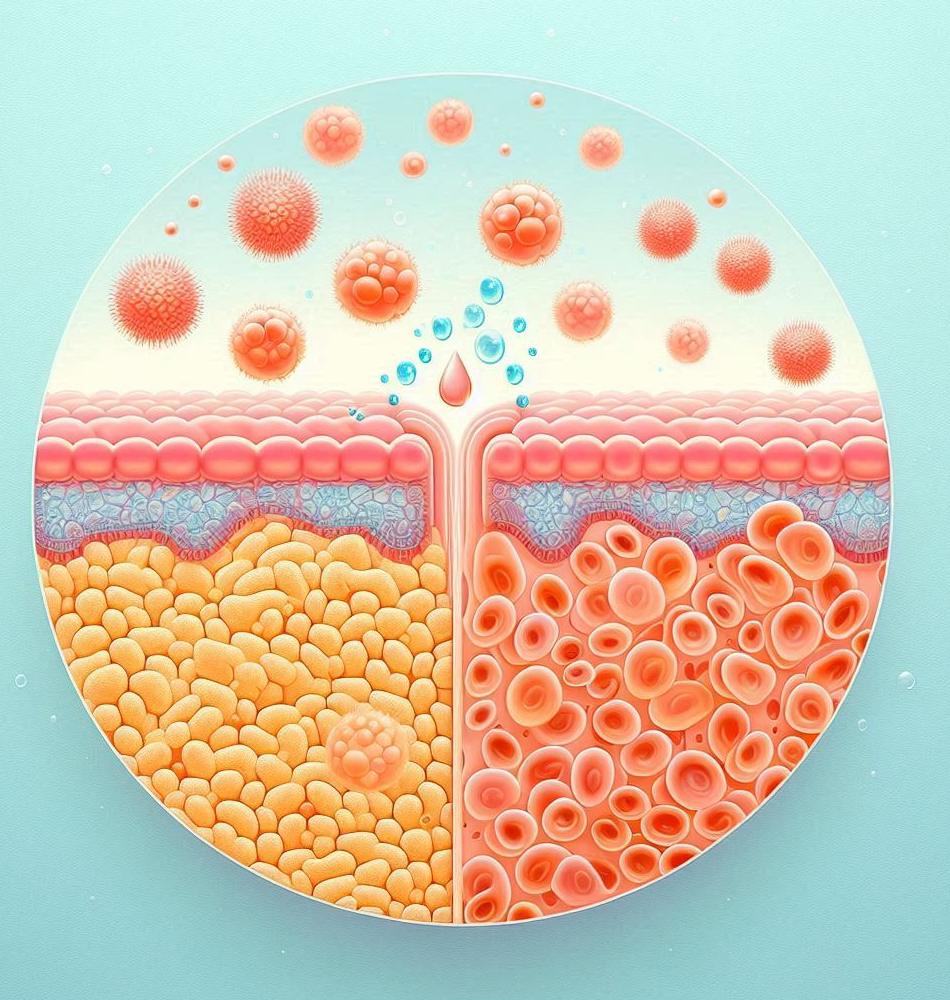Can Eczema Be Caused by Stress? The Intriguing Connection Unveiled 🌼
Welcome to the world of eczema, a skin condition that many struggle with daily. Itchy, inflamed skin can often feel like a badge of dishonor, especially when the cause is elusive. However, one question continues to capture the curiosity of many: can eczema be caused by stress? As our lives become increasingly frantic, the implications of stress on our health cannot be overlooked. In this article, we will delve into the intricate connection between stress and eczema, exploring how emotional well-being plays a crucial role in skin health.
Understanding Eczema: What Is It and Why Does It Matter? 🌱
Eczema, also known as atopic dermatitis, is a chronic skin condition that causes inflammation, redness, dryness, and itchiness of the skin. The significance of understanding eczema extends beyond the physical symptoms, as it can profoundly impact one's quality of life. People with eczema may experience discomfort, social anxiety, and emotional challenges due to their appearance and pain. Let us break down the key aspects of eczema so we can better understand its connection to stress.
The Basics of Eczema
Eczema typically appears in early childhood and can continue into adulthood. Here are some common characteristics of eczema:
- Itchy patches that can lead to scratching and increased irritation.
- Dry, cracked skin that may weep fluid or bleed when scratched.
- Red, inflamed patches, often found in the creases of the elbows and knees.
- Thickened skin in chronic cases, giving a leathery appearance.
- Increased vulnerability to skin infections.
Stress and Its Effects on the Body: An Overview 🌪️
What exactly happens in our bodies when we experience stress? Understanding the effects of stress is crucial for comprehending its potential impact on conditions like eczema. Stress triggers our body's "fight or flight" response, leading to the release of hormones such as cortisol and adrenaline. This hormonal response can have several influences on the body:
The Physical Impact of Stress
- Increased blood pressure and heart rate.
- Weakened immune function.
- Muscle tension and pain.
- Inflammation throughout the body.
- Exacerbation of chronic conditions, including allergies and skin disorders.
Can Stress Trigger Eczema Flare-Ups? 🌀
This leads us to the central question: can stress actually trigger eczema flare-ups? While eczema is influenced by various factors, including genetics, triggers, and environmental conditions, stress emerges as a significant contributor.
The Evidence Behind Stress-Induced Eczema
Numerous studies suggest a strong correlation between stress and eczema flare-ups. Some key points of evidence include:
- Self-reported symptoms: Many individuals with eczema report experiencing flare-ups during periods of high stress.
- Scientific research: Clinical studies have shown that stress can lead to increased skin inflammation, worsening existing skin conditions.
- Psychological impact: Anxiety and depression, which can often accompany eczema, may also contribute to flare-ups.
Mechanisms Behind the Connection
But how does stress lead to eczema? Below are several mechanisms that explain this complex relationship:
- Inflammation: Stress hormones increase inflammatory markers, which may trigger eczema symptoms.
- Immune response: Stress suppresses the immune system, making the body more susceptible to allergens and irritants.
- Increased itching: Stress can heighten sensitivity to itch, leading to scratching and worsening the eczema condition.
Managing Stress to Control Eczema Symptoms 🌈
Understanding the connection between stress and eczema can be a game-changer in managing symptoms. Here are some effective strategies to alleviate stress and potentially reduce flare-ups:
Mindfulness and Relaxation Techniques
Incorporating mindfulness practices into your daily routine can significantly mitigate stress levels. Consider the following techniques:
- Meditation: Taking a few minutes each day to meditate can help center your thoughts and ease anxiety.
- Deep breathing: Engaging in deep-breathing exercises can calm the nervous system and lower stress levels.
- Yoga: Practicing yoga can improve flexibility and promote relaxation.
- Nature walks: Connecting with nature not only benefits mental health but also promotes physical well-being.
Healthy Lifestyle Choices
Maintaining a healthy lifestyle can also reduce stress and improve overall skin health. Here’s how:
- Nutrition: Eating a balanced diet rich in fruits, vegetables, whole grains, and healthy fats provides necessary vitamins for skin health.
- Exercise: Regular physical activity can boost endorphins, naturally combating stress.
- Sleep: Ensure you get enough restorative sleep as lack of sleep increases stress levels.
Seek Professional Help
Sometimes, managing stress requires professional intervention. Don't hesitate to reach out to:
- Psychologists or counselors for talking therapies.
- Dermatologists specialized in eczema management.
- Support groups for shared experiences and insights.
Frequently Asked Questions (FAQs) ❓
- Can stress trigger eczema in everyone?
- How quickly can stress lead to eczema flare-ups?
- What are common triggers besides stress?
- Are there specific stress management techniques recommended for eczema sufferers?
- Should I consult a doctor if my eczema worsens during stressful times?
Conclusion: Embracing a Stress-Free Life for Healthier Skin 🌺
In conclusion, the connection between stress and eczema is evident and profound. Managing stress effectively can lead to improved skin health and a better quality of life. By incorporating relaxation techniques, maintaining a healthy lifestyle, and seeking support, individuals with eczema can take proactive steps to minimize flare-ups related to stress. Remember, caring for your mind is just as important as caring for your skin. Embrace a stress-free life for healthier skin and a happier you.







